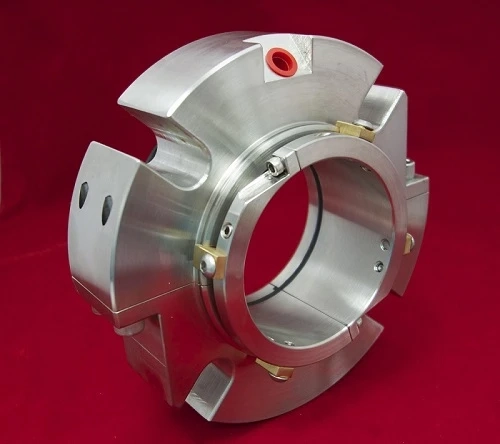Split seals, also known as split mechanical seals, are a type of sealing technology used in rotating equipment, such as pumps and mixers, to prevent leaks and protect the environment. Split seals are designed to be installed without dismantling the equipment, making them an ideal solution for maintenance and repair activities. In this article, we will provide an overview of split seals, including their types, benefits, and applications.
Types of Split Seals
There are two main types of split seals: split mechanical seals and split cartridge seals. Split mechanical seals consist of two halves that can be separated and installed around the shaft without dismantling the equipment. Split cartridge seals, on the other hand, have a cartridge assembly that can be removed and replaced as a unit. Both types of split seals offer the same benefits, including reduced downtime and improved equipment reliability.
Benefits of Split Seals
Split seals offer several benefits compared to traditional seals. Some of the key benefits of split seals include:
Easy Installation and Maintenance: Split seals can be installed without dismantling the equipment, reducing downtime and maintenance costs.
Improved Reliability: Split seals are designed to prevent leaks and reduce wear and tear on the equipment, resulting in improved reliability and longer equipment life.
Environmentally Friendly: Split seals prevent leaks and protect the environment from contamination, making them an environmentally friendly sealing solution.
Applications of Split Seals
Split seals are commonly used in a wide range of industries, including chemical processing, pharmaceuticals, food and beverage, and water treatment. They are ideal for applications where the equipment cannot be dismantled or where downtime must be minimized. Some of the common applications of split seals include:
Pumps: Split seals are used in centrifugal pumps, positive displacement pumps, and other types of pumps to prevent leaks and reduce maintenance costs.
Mixers: Split seals are used in mixers and agitators to prevent leaks and reduce downtime during maintenance.
Compressors: Split seals are used in reciprocating compressors and rotary screw compressors to prevent leaks and improve reliability.
Conclusion
Split seals offer several benefits compared to traditional seals, including easy installation and maintenance, improved reliability, and environmental friendliness. They are commonly used in a wide range of industries, including chemical processing, pharmaceuticals, food and beverage, and water treatment. If you are looking for a sealing solution that can reduce downtime and maintenance costs, consider using split seals in your equipment. For more details visit the website.



